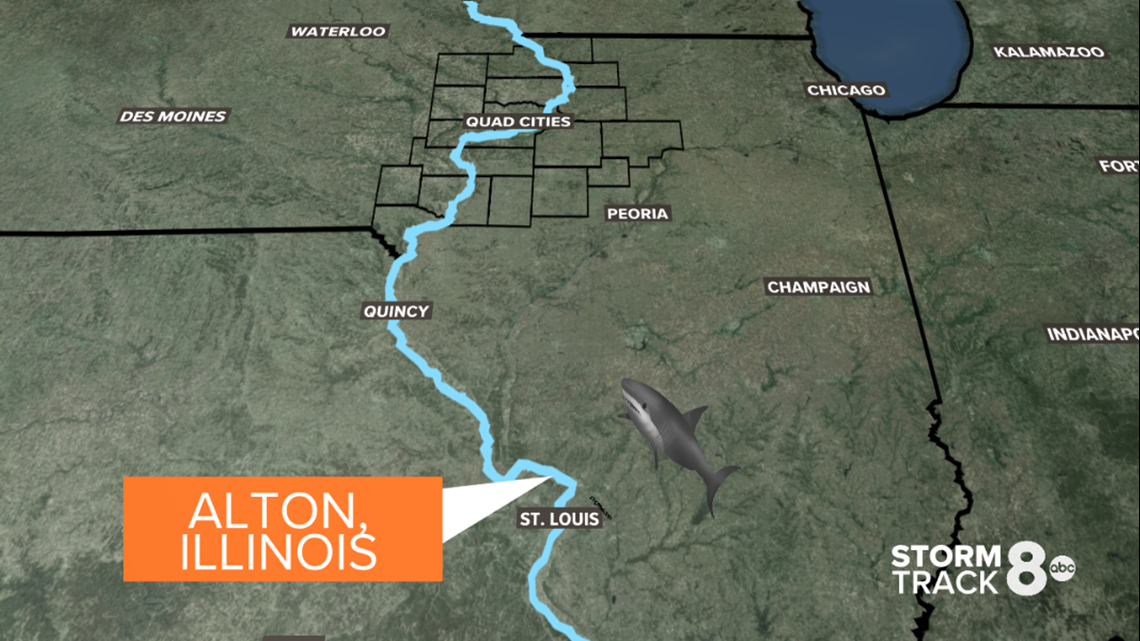MOLINE, Ill. — We know the Mississippi River hosts a wide range of aquatic life all up and down its span from the Canadian border to the Gulf of Mexico, but can it support something a little more unusual, like a shark? Let's verify!
THE QUESTION
Have sharks been found in the Mississippi River?
THE SOURCES
Illinois Department of Conservation
Dr. Ryan Shell - Paleontologist at the Cincinnati Museum Center
Nick Gardner - WVU Potomac State College Librarian
THE ANSWER
The residents of Alton, Illinois, located north of St. Louis, know the answer all too well. In 1937, two fishermen managed to capture a five-foot, 84-pound bull shark. To say it was a surprise would be an understatement. Another bull shark was caught in 1995 near Rush Island, Missouri.
How in the world did these sharks end up this far north and so removed from the warmer waters of the Gulf of Mexico or the Atlantic Ocean?
These sightings caught the interest of Paleontologist Dr. Ryan Shell, a Research Associate at the Cincinnati Museum Center. Dr. Shell teamed up with Nick Gardner, a WVU Potomac State College librarian, to comb through historical records and sightings to rule out possible hoaxes or past misidentification.


Scientists have been quick to point out that this particular species of shark, the bull shark, has been able to adapt to living in freshwater environments, including rivers and lakes. Even with the absence of saltwater, these sharks are able to feed on whatever food source may be present, including other fish, of course. Other species, like the Great White Shark, can only survive in saltwater.
There are several theories as to why this type of shark may be migrating itself away from its natural habitat. One of which includes climate change and recent strong hurricanes that have contaminated areas near the shore allowing the sharks to migrate further north to less polluted waters. These sharks could also be on the move to avoid other predators and give their offspring a better chance of survival.


"Bull sharks actually have a wide tolerance for different temperatures," Shell said. "In fact, much of the lower portion of the upper Mississippi River experience favorable temperatures for these sharks throughout large portions of the year."
Shell says an area's past history can also provide some misleading clues when it comes to more recent shark activity in unusual locations. Shark teeth are not unusual in many archeological sites, such as the Ohio River Valley portion of the upper Mississippi River Basin as shark teeth were valuable for indigenous trade. This makes it really hard to establish if they had been sourced from the Atlantic or Gulf Coasts or from a shark that somehow made its way up the Mississippi River.
Most recently in Minnehaha Creek, Minnesota, bull shark teeth were supposedly found by a young girl. However, it was later discovered that the supposed teeth were part of an April Fool's joke on a homeowner's association website that quickly spiraled out of control.
You can read more about this research in the July issue of Marine and Fishery Sciences.

